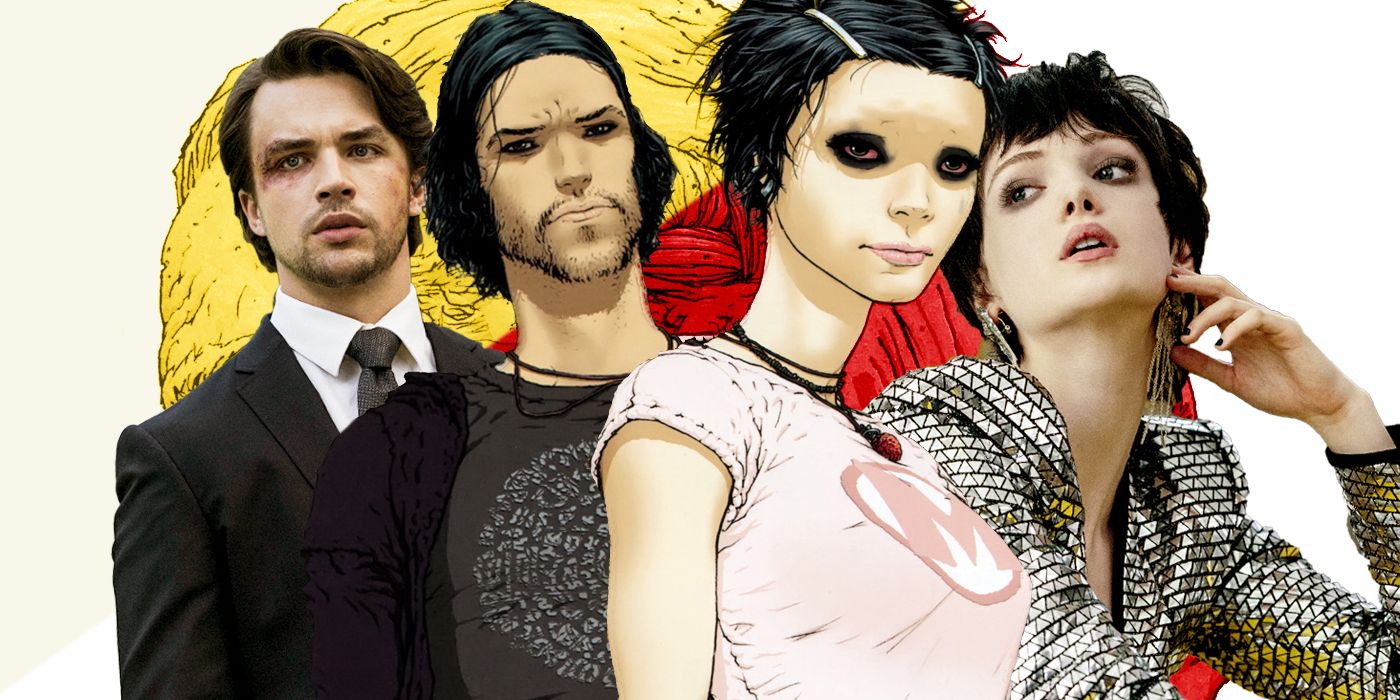
Warning: SPOILERS ahead for Jupiter's Legacy season 1, plus possible spoilers for season 2 and beyond.
After its eight-episode first season, Netflix TV show Jupiter's Legacy has built up a story and characters that are considerably different from the original comics by Mark Millar and Frank Quitely. Though it's possible that the show could end up following the same overall story arc as the comics, for now at least it seems to be setting off on its own course.
Developed for TV by Steven S. DeKnight (who exited the show during production and was replaced as showrunner by Sang Kyu Kim), Jupiter's Legacy is the first project to emerge from Netflix's acquisition of Millar's comics publishing company, Millarworld. Josh Duhamel stars as Sheldon Sampson a.k.a. The Utopian, a 120 year-old superhero whose rigid ideals have made him a living legend, but distanced him from his brother, Walter (Ben Daniels), and his two children Chloe (Elena Kampouris) and Brandon (Andrew Horton).
Jupiter's Legacy and its prequel series, Jupiter's Circle, are less gleefully nihilistic than some of Millar's other works like Nemesis and Kick-Ass. That said, they still feature the kind of shocking hyper-gory character deaths that the comic book writer is known for, and offer a critical look at both superheroes and America's socio-political landscape. The TV adaptation, by contrast, offers a slower meditation on what it means to be a superhero in an increasingly complex modern world, while also throwing in entirely new storylines. Here are Jupiter's Legacy's biggest changes from comic book to screen.
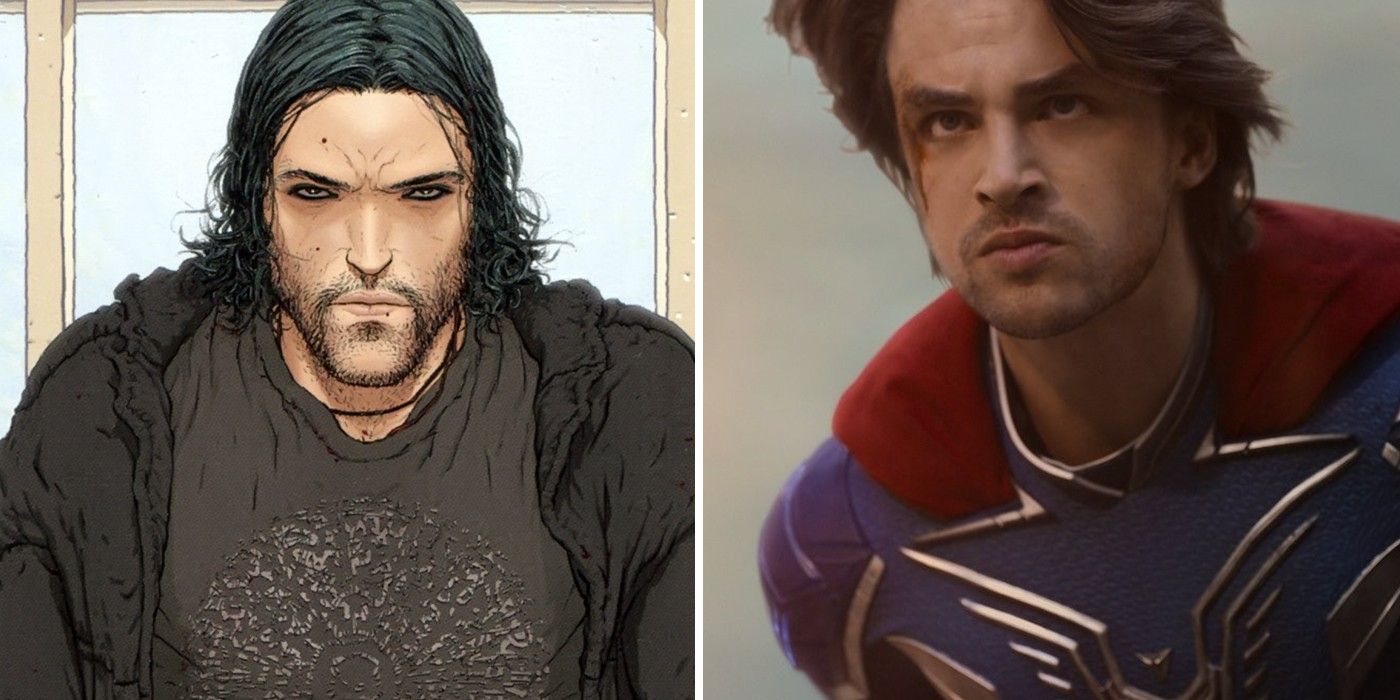
Perhaps the biggest and most immediately noticeable change in Jupiter's Legacy is the characterization of Brandon Sampson. The comic book and TV show versions of the character have a few basic details in common; in both stories, Brandon is under tremendous pressure to live up to his father's ideals, since Chloe has rejected them entirely. But whereas Netflix's Jupiter's Legacy portrays Brandon as a generally good guy who loves his father despite their complex relationship, the comic books' Brandon is a toxic mess with little to no empathy for others. In one of his attempts to make his father happy he gets extremely drunk and gives a cargo ship an unsolicited airlift to try and speed up its journey, but accidentally tips it over and comes close to killing a lot of people before the Utopian intervenes.
Not only does Brandon start out a lot worse in the comics, it doesn't take long at all for him to become a full-blown villain. With just a little manipulation from his Uncle Walt, Brandon joins in on a plan concocted by the new generation of superheroes to murder their predecessors and turn America into a fascist dystopia where superheroes call all the shots. After the Utopian is weakened - first by a comet with bombs strapped to it, and then by the rest of the superheroes beating him down - Brandon steps in and finishes his father off by blasting his laser vision directly into Sheldon's eyes, until there's nothing left of his face but a scorched skull. He shows no remorse for killing his father, and doesn't appear to grieve for his mother at all.
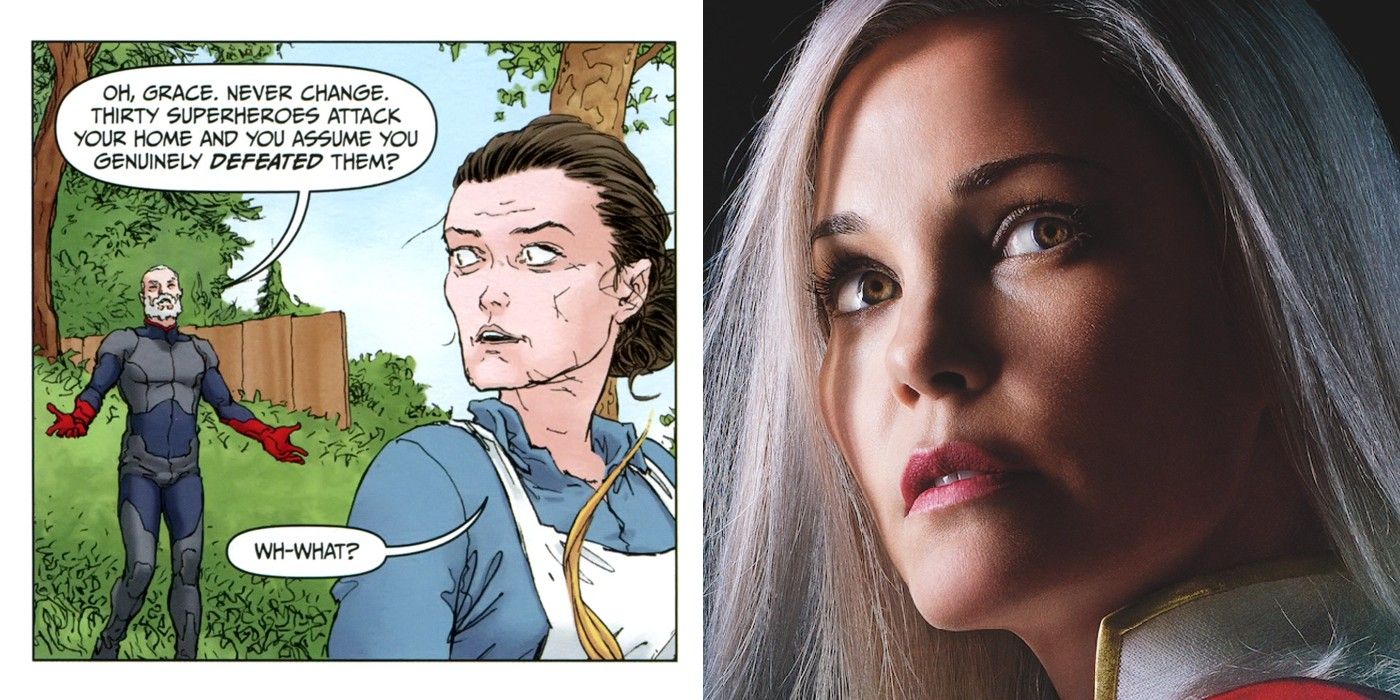
One obvious effect of Brandon killing Sheldon off in Jupiter's Legacy #3 is that there's actually not much focus on the Utopian in the comics, with even the prequel series being focused more on characters like Skyfox, Blue Bolt, the Flare and Brainwave. Grace is similarly not a major character in the comics, and is killed off shortly before Sheldon is. Before the rebelling superheroes go to kill the Utopian, they first pay a visit to the Sampson house and ambush Grace and Chloe. Brainwave uses his powers to trap Grace inside a fantasy of herself winning the fight, while out in the real world the superheroes tear into her and impale her many times over with arrows and other weapons. Once she's disembowelled and on the verge of death, Brainwave breaks her out of her fantasy for just long enough to realize what's been done to her, before using his powers to induce an aneurysm that kills her.
Leslie Bibb's portrayal of Grace is already considerably more fleshed out than she is in the comics, so hopefully she will avoid this grim fate even if the superhero coup storyline plays out in Jupiter's Legacy season 2. But if she does end up dead in the present-day timeline, she could still continue to appear in the past storyline as it explores the early days of the Union of Justice.

In Netflix's adaption of Jupiter's Legacy, the story of how the original Union of Justice members were first drawn to the mysterious island where they gained their superpowers is drawn out over seven episodes. Since their origin story is covered fairly briefly in the comics, this means that a lot of detail was added for the TV show - including Sheldon's visions of his father, the explanation of how all the different members came together, and Sheldon's pilgrimage to the Miller farm. Jupiter's Legacy also expands on the trials that the six characters face on their journey to becoming the Union of Justice; whereas in the comics they just have to deal with the challenges of the journey, in the TV show there are many more forces working to test their worthiness and their ability to work together.
The exact nature of the island's inhabitants is also slightly more ambiguous in the TV show. In the Jupiter's Legacy comics they appear as tall, green-skinned beings that are later explicitly referred to as aliens, though their exact motives for gifting superpowers to humans are left uncertain. In the Netflix series the beings wear human forms, appearing as the people that Sheldon, Walt, Fitz, Grace, Richard and George most want to see. Though the fact that they're transported to an alien planet certainly implies that the island was created by an advanced alien race, it's largely left up to audience interpretation.
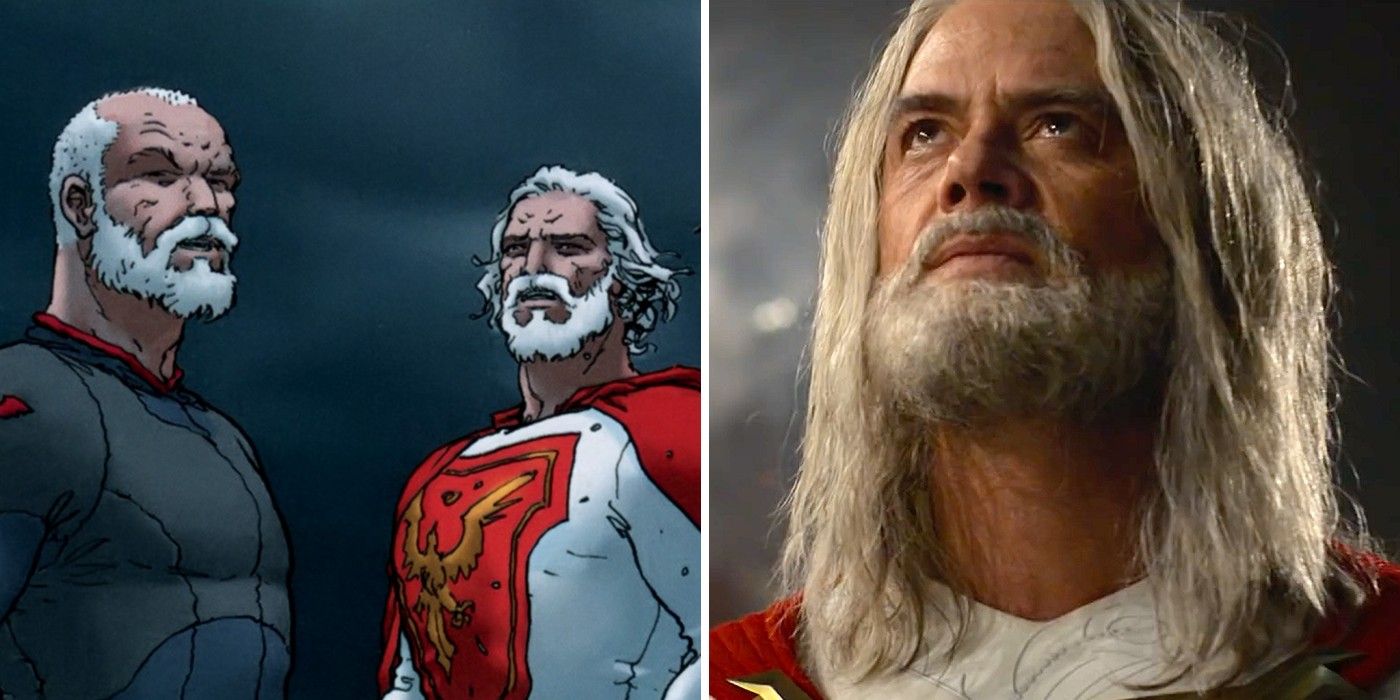
Far more so than the comics, Netflix's version of Jupiter's Legacy fixates a great deal on whether or not superheroes should kill. The Utopian is vehement in his belief that they should not, and created the Code to lay out rules against not only killing supervillains, but also abuses of their power like meddling in politics. This latter point is taken from the comics, with Walt believing that America has become a mess and that superheroes have both the right and the responsibility to forcibly create a new order. This is the cause for which he recruits Brandon and the rest of the superheroes, and Jupiter's Legacy #4 features a big jump forward in time that reveals that has become of the world now that superheroes are in charge.
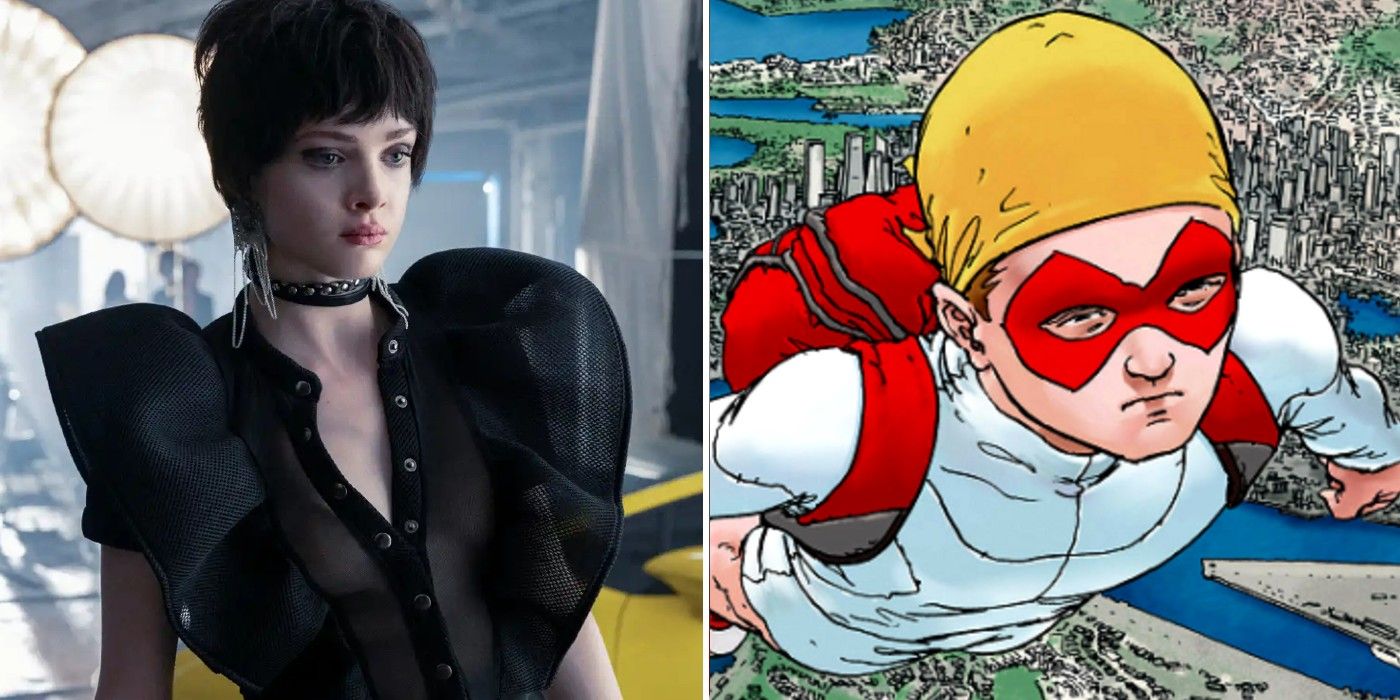
Speaking of that big jump forward in time, one of the major things that happens in the comics is that Hutch and Chloe have a son. In fact, they have already been having a secret love affair for some time when the comic begins, and Chloe learns that she's pregnant after the overdose that lands her in the hospital. Following the time jump in Jupiter's Legacy #4, Chloe and Hutch have assumed new identities and have a son, Jason, who has superpowers but has learned to conceal them. He can't resist the call to save people, however, and his superhero antics unfortunately attract the attention of Walt and Brandon.
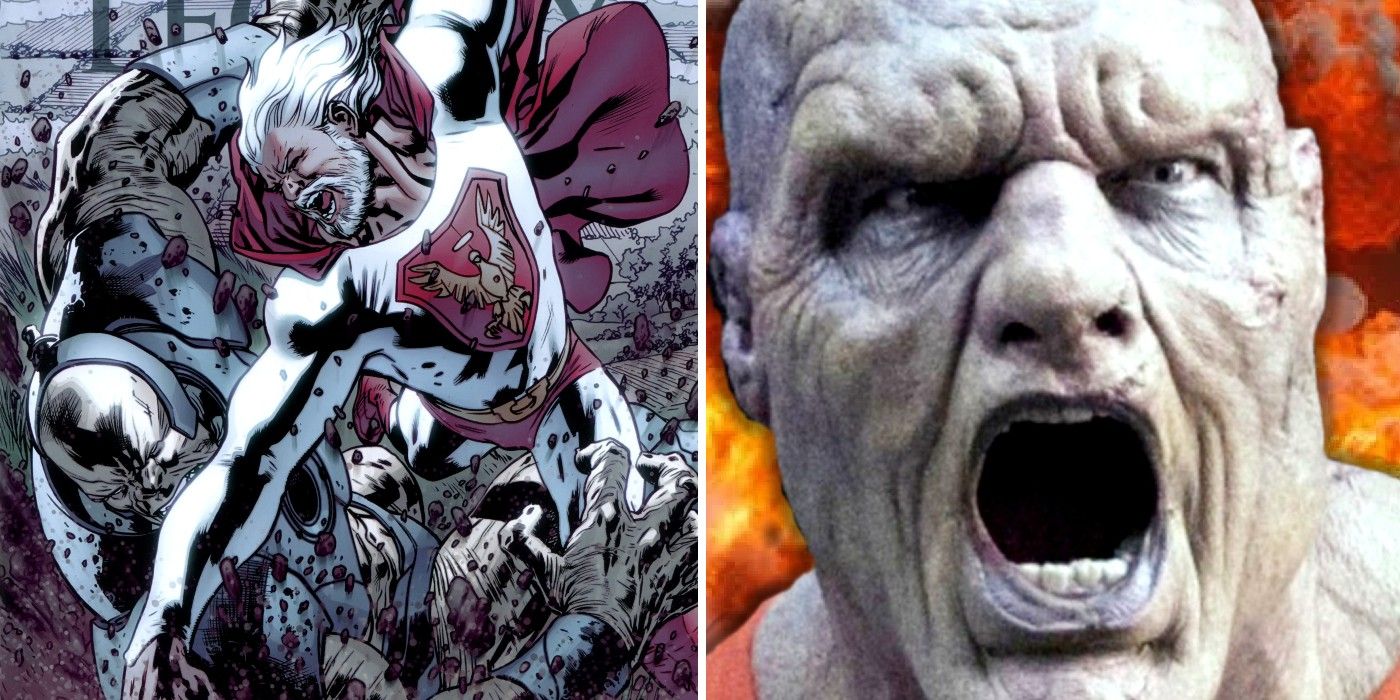
Blackstar does appear in the Jupiter's Legacy comics, but only in a single battle that demonstrates how the Union of Justice operates in the present day. As in the TV show, some of the lower-tier superheroes choose to watch the battle from a distance because they want the glory but don't want to risk getting hurt. Unlike the TV show, the Utopian is able to defeat Blackstar without any help from his son, instead utilizing Brainwave's ability to trap Blackstar in a psychological fantasy world while he's beaten into submission. Blackstar is taken back to Supermax, alive, and there's no plotline involving a clone or Brandon killing the Blackstar clone to save his father.
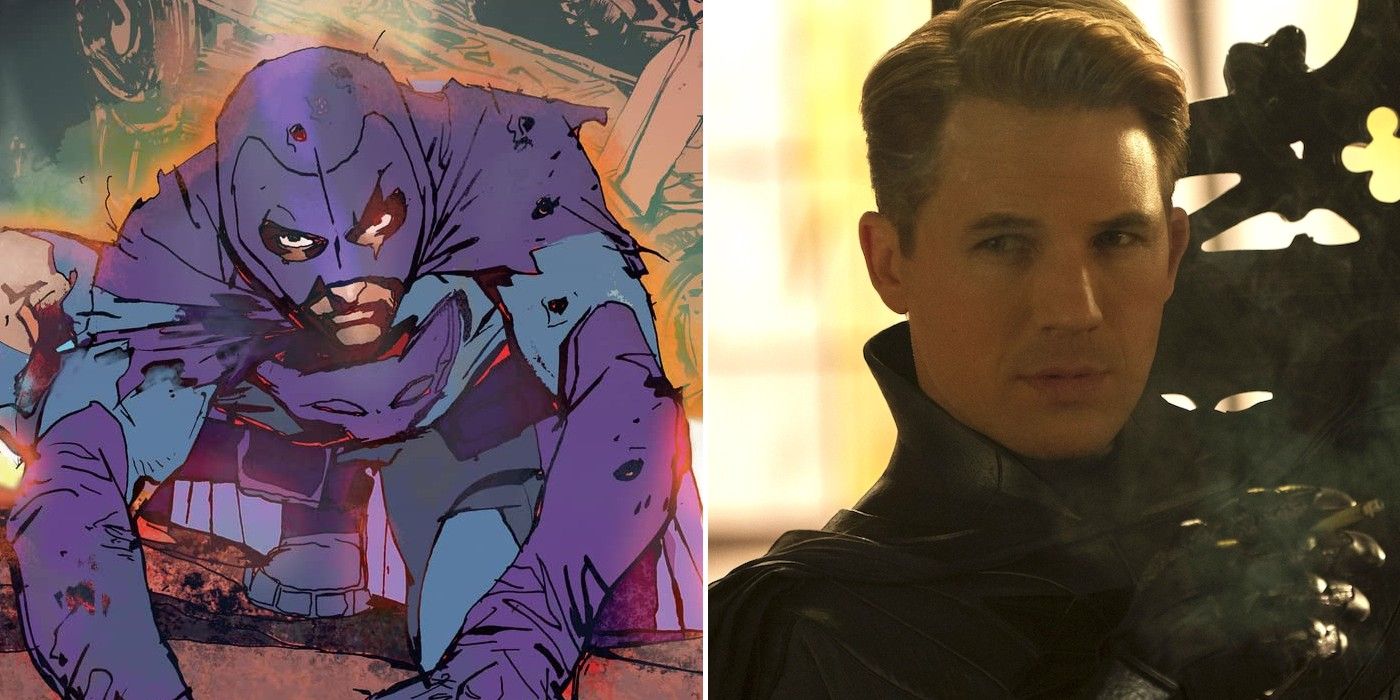
Jupiter's Legacy season 1 builds up the idea that Skyfox, a former member of the Union of Justice who later became a supervillain, is behind the creation of the Blackstar clone. However, the season finale reveals that it was actually Walter who created the clone and then framed Skyfox for it. Meanwhile, Skyfox's son Hutch - who may not have inherited superpowers from his father, but did inherit his talent for tech inventions - is building some kind of device designed to help him find his father. This could be a version of a device from the comics, built by Hutch's own son, which was designed to track the signatures of super-powered beings. It may also be an entirely new invention, whose purpose will only be revealed in season 2.
from ScreenRant - Feed https://ift.tt/3uCHp03

0 Comments